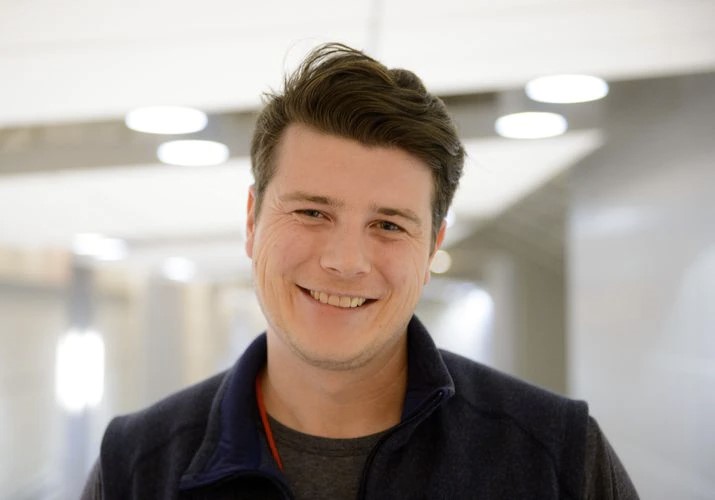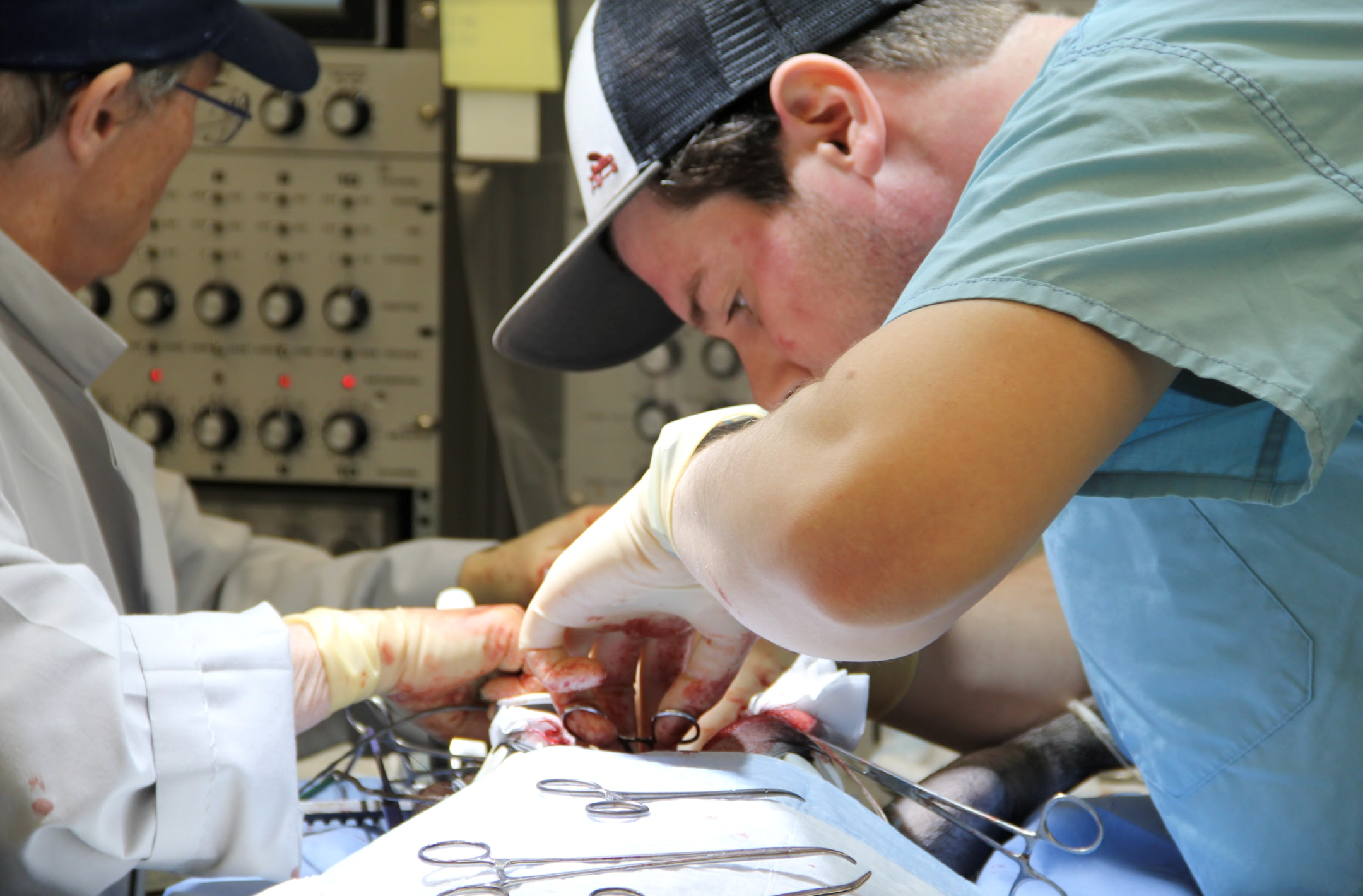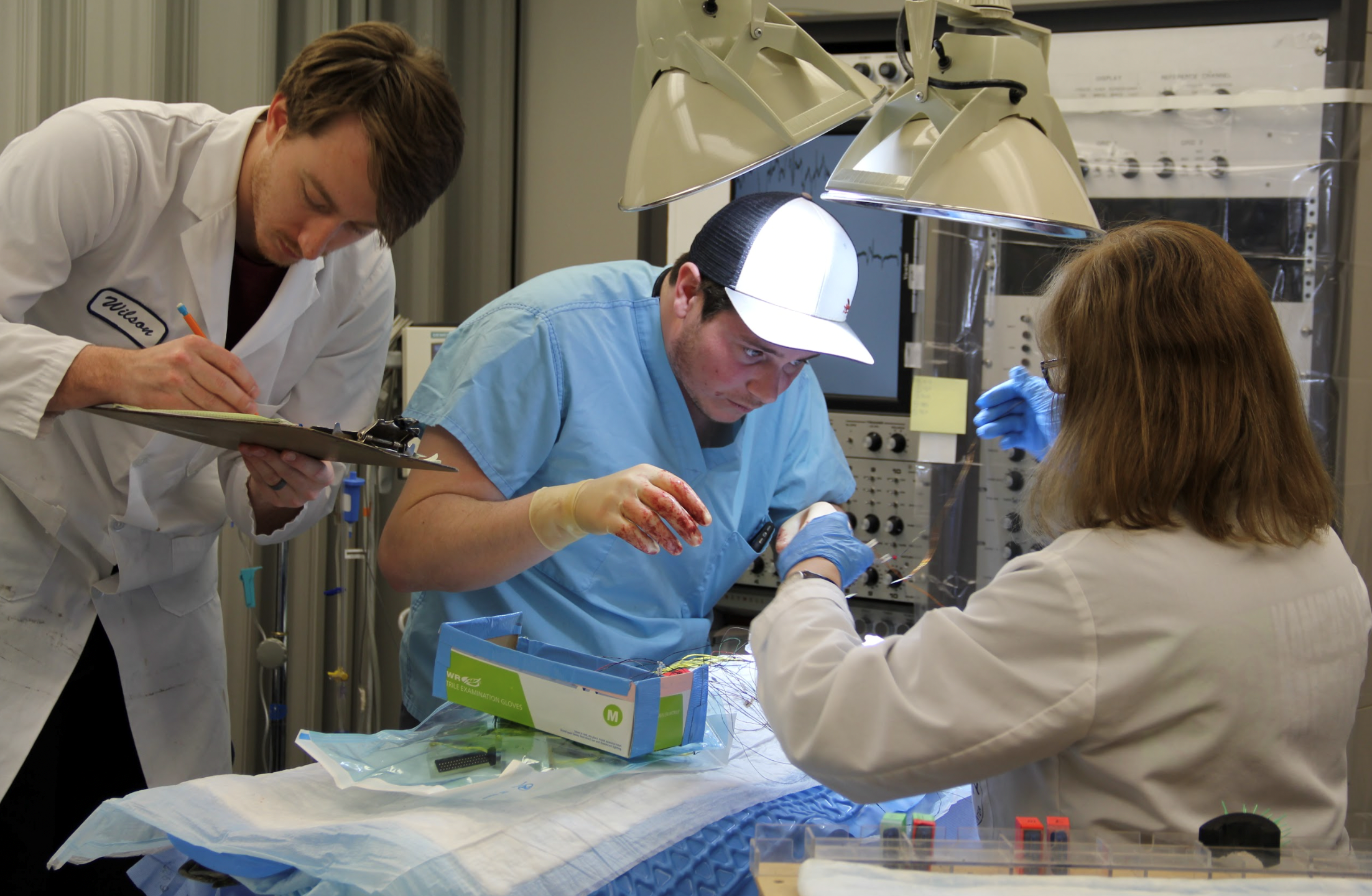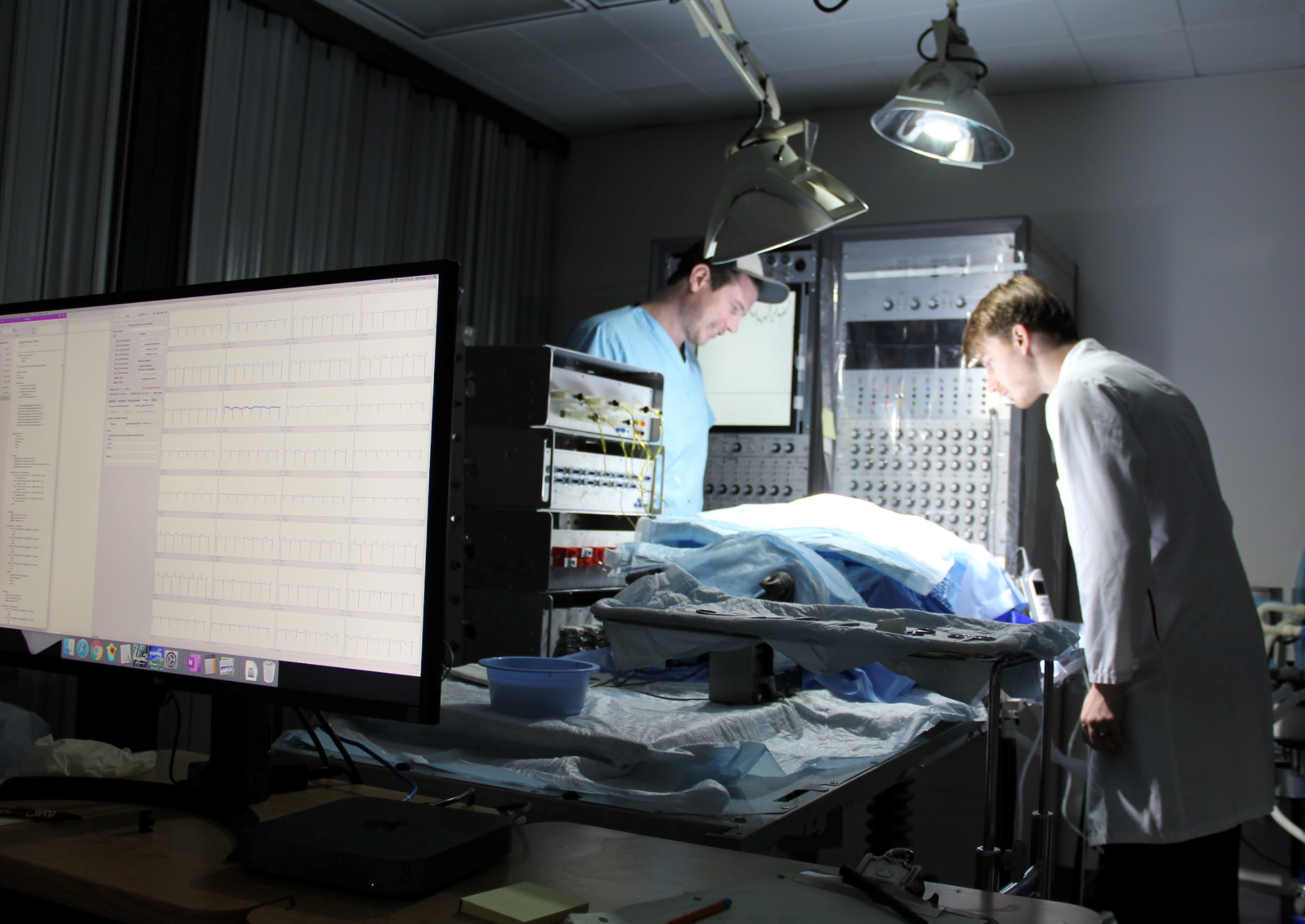Congratulations to Brian Zenger for receiving the Outstanding Dissertation Award for 2021 from the College of Engineering!
"Experimental Examination of Partial Occlusion Acute Myocardial Ischemia"
In light of this accomplishment, we asked Brian a few questions:
Can you provide a brief summary of your dissertation?
The most common reason for a patient to visit the emergency department is chest pain caused by myocardial ischemia. Myocardial ischemia develops from inadequate perfusion of myocardial tissue and indicates the presence of surprising range of conditions, including coronary artery disease, coronary microvascular dysfunction, Takotsubo cardiomyopathy, and coronary artery dissection, and other potentially fatal cardiac diseases. if left untreated, the long-term effects of these diseases can lead to significant decreases in quality of life and increased mortality. current noninvasive tests to detect ischemia may be limited by an incomplete understanding of the mechanisms used to induce the stress (exercise or pharmacological agents) or the limited understanding of how ischemic signals change over time. These limitations increase the risk for fail3ed detection of deadly cardiac diseases and explain the unsatisfactory accuracy of current diagnostic and monitoring approaches.
The goal of this dissertation was to leverage recent experimental findings and breakthroughs about the onset and progression of ischemia as the basis for a comprehensive re-evaluation of acute myocardial ischemia. First, we refined our experimental model to include comprehensive electrical measurements sampled simultaneously from within the myocardium, on the heart surface, and on the torso surface. we then built on our experience with our novel large-animal experimental models of ischemia to measure the characterize the electrical changes that arise during acute myocardial ischemia created from various types of ischemic stress. We also explored possible mechanistic drivers for these differences. Finally, we assessed the transient changes common to ischemic signatures, including the appearance and disappearance of ischemic potentials as recorded from epicardial and torso surface measurements.
Where did your interest in Biomedical Engineering start?
I pursued Biomedical Engineering in Undergrad training because of a high school project. I was able to interview and interact with a current Biomedical Engineer who described the amazing tools and technology used to help people live their lives to the fullest. I am currently completing a dual degree MD/PhD program at the University of Utah. I chose Biomedical Engineering and Cardiovascular Electrophysiology because of my interest in supporting patients with complex arrhythmias and understanding the mechanistic underpinnings of cardiovascular disease.
Why “Experimental Examination of Partial Occlusion Acute Myocardial Ischemia”?
I chose this topic to integrate many levels of scientific exploration and better understand a well-known clinical issue with measuring and identifying patients at risk for significant cardiovascular disease. I wanted to understand the relationship between different clinical testing techniques and if the differences could be defined and leveraged for various patient populations. To answer these questions, I wanted to use an experimental model that allowed us to visualize the electrical changes in high-resolution in a controlled environment.
Do you have any research/writing tactics that you’d like to share?
A crucial component of good research is having an amazing group to interact with. I was fortunate to work with Dr. Rob MacLeod, CEG research group, SCI Institute, and CVRTI with amazing mentors and peers that supported me throughout my graduate training. having people to discuss ideas, help with reviewing writing, and develop experiments were critical to this work. I also found it important to keep myself organized and focused on a broad range of goals. I really appreciated the autonomy and flexibility of PhD work and the rigor that was required to conduct large scale, repeatable, and robust experiments. i tried to stay grounded by exercising daily, spending time outside, and enjoying time with friends. Finally, the unwavering support of my partner who continued to push me to grow and develop in ways I never thought possible was constant and inspirational.
What is next for Brian Zenger?
I am currently completing my MD portion of an MD/PhD program. I then plan to attend a residency and fellowship programs in cardiology. My long-term goal is to be a practicing cardiologist and physician scientist at an academic center.
Brian Zenger is the recipient of the College of Engineering outstanding Dissertation Award for his Ph.D. dissertation entitled, “Experimental Examination of Partial Occlusion Acute Myocardial Ischemia”. His dissertation was chosen as one of two best dissertations defended in 2021. The selection committee, which included representatives from each department in the college, evaluated the nominated dissertations based on intellectual merit and knowledge advancement, broader impacts and societal benefits, and the extent to which the research explored creative, original and transformative concepts. His dissertation ranked high in all these criteria. The committee was also impressed by the enthusiasm of the faculty members who wrote letters in support of his nomination. Congratulations to Brian on his excellent dissertation, for receiving his doctoral degree, and for being an exemplary student during his time at the University of Utah.



